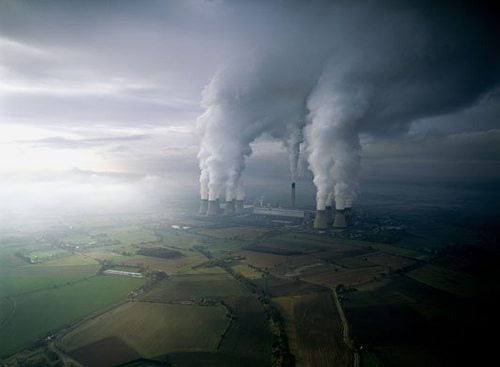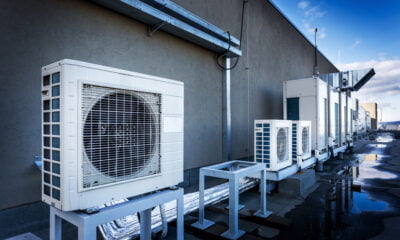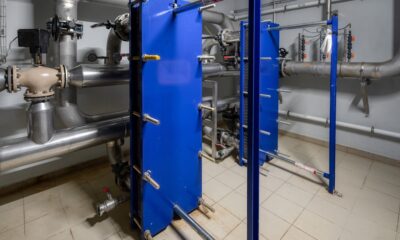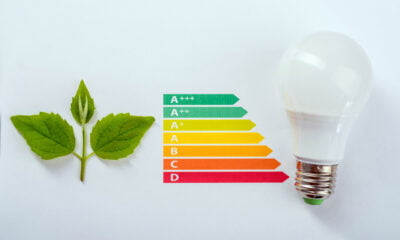

Energy
MPs call for cuts to fossil fuel subsidies, not green levies
The government must be more honest about the levels of subsidies given to fossil fuel companies relative to renewable energy, and reaffirm its commitment to fighting fuel poverty, a committee of MPs has warned.
In October, announcements of rising household energy bills prompted David Cameron to pledge to review the impact of environmental and social taxes on energy bills, suggesting that subsidies supporting renewable energy and energy efficiency schemes should be “rolled back”.
The chancellor George Osborne revealed on Sunday that energy companies would be reducing bills after the government altered some of the so-called “green levies.”
However, in a report by the environmental audit committee (EAC), MPs have said that while energy subsidies in the UK currently add up to around £12 billion a year, the majority of this sum supports fossil fuel firms.
The EAC claims that though “green levies” account for 9% of bills, they will not increase bills in the long-term. This contradicts the claims of the big six energy companies, who blamed the subsidies for pushing up costs.
“In the longer term green levies could actually keep bills down if they drive energy efficiency improvements that cut the cost of heating our homes”, said Joan Walley MP, the chair of the EAC.
“Insulating homes and supporting green technologies is vital to help the fuel poor and cut the emissions causing climate change.”
The MPs call on the government to use this week’s autumn statement to introduce a target reducing the proportion of subsidies for fossil fuel consumption, over those that support low-carbon energy consumption. This, they say, would reinforce the need to cut the greenhouse gas emissions contributing to climate change.
“At the Rio+20 Summit and the G20, the government committed itself to phasing out fossil fuel subsidies that encourage wasteful consumption and contribute to greenhouse gas emissions”, Walley added.
“The government must set a target to reduce subsidies to harmful fossil fuels.”
The EAC argues that on the other hand, “careful and targeted” subsidies must continue to support renewables and energy efficiency initiatives, to provide certainty for investors.
Environmentalists have praised the findings of the report. Friends of the Earth economics campaigner David Powell commented, “MPs are spot on. The only way to tackle the scandal of fuel poverty and rocketing energy bills is through a well-funded programme of insulation – and not hand-outs for oil barons and fracking firms, under a veil of green-bashing.”
He added, “It’s astonishing that the chancellor is preparing to slash funding to insulate the homes of the poorest in society, while throwing billions of pounds of tax breaks at oil and gas firms to keep the nation hooked on increasingly costly fossil fuels.”
The EAC report also states that it is difficult to define precisely what a subsidy is, adding that the government has manipulated this fact to wrongly dispute that it is providing subsidies to certain projects.
In particular, the committee says that the government’s promise that new nuclear projects would not be publicly subsidised has not been kept. The MPs rule that the “support mechanisms” and “insurance policies” offered to the new Hinkley Point C project are subsidies in all but name.
Walley added, “New nuclear is being subsidised and the coalition should come clean and admit it.”
Further reading:
Energy bills to be cut by £50 after government shake-up
British public say energy efficiency should be number one infrastructure priority
Green levy review will put 10,000 jobs at risk across UK
Energy committee to PM: cutting green levies will ‘undermine investor confidence’
Inquiry launched to ‘get to the bottom’ of UK energy subsidies


 Environment12 months ago
Environment12 months agoAre Polymer Banknotes: an Eco-Friendly Trend or a Groundswell?

 Features11 months ago
Features11 months agoEco-Friendly Cryptocurrencies: Sustainable Investment Choices

 Features12 months ago
Features12 months agoEco-Friendly Crypto Traders Must Find the Right Exchange

 Energy11 months ago
Energy11 months agoThe Growing Role of Solar Panels in Ireland’s Energy Future




























